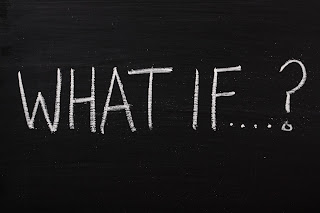I’ve recently been talking and guest-posting about the importance of ensuring our protagonists evolve and grow through the choices and decisions they make throughout the course of their stories. Whether these choices and decisions are compelled by something awful (the protagonist up against a threat with noapparent choice) or by something terrific (the protagonist seeing the means to achieve and go for their goal), it’s the choices and decisions our protagonists make that go into defining who they are, add solidity to what they’re made of, and instill a drive to face new things when they think they’ve faced everything they can possibly face.
Talking and writing about how the most memorable and most compelling protagonists make choices and decisions all the time, I’ve caught myself wondering about the sorts of choices and decisions I make in my own life. Do the choices and decisions I make go into defining who I am? Do the choices and decisions I make add solidity to what I’m made of? Do the choices and decisions I make instill in me a drive to face new things—things that may take me out of my comfort zone, things that may make me fearful, things that make me someone more complex than the person I was the day before? Sure I do…sometimes. Once in a while. Not often enough. Certainly not enough, I realize, to be most memorable and most compelling protagonist if I were the main character in a story.
Okay, maybe I’m selling myself short. Maybe every single choice and decision I make over the course of any given day actually adds to my evolution as a person. It sure doesn’t feel like it, though, not when I think about what we ask our characters to face in our stories. And this gets me thinking about why we write stories in the first place and why we create the characters we create.
Is it possible we’re instilling in our protagonists the abilities, attributes, and drives we may not ourselves have but wish we had? Is it possible we’re putting our protagonists into positions where they have to make seemingly impossible choices and decisions that will result in seemingly impossible repercussions in order to test our own boundaries and definitions of what’s truly impossible? Is it possible we’re forcing our protagonists to face their ultimate “what if?” questions so we can explore how we might behave and react when faced with our own ultimate “what if?” questions? Absolutely! I think this is what writers do all the time—not only do writers write to express and explore the stories inside their heads and hearts, but to express and explore the stories of ourselves, our humanity, our boundaries, and our capacities.
 Though it may not feel like it, all of us, at varying degrees and at varying times, are in positions to make—and do make—the kinds of choices and decisions we ask of our protagonists. Some of the positions in which we find ourselves making choices and decisions will be awful, some will be terrific. Some of the positions in which we find ourselves making choices and decisions will feel utterly impossible, some will feel easy. It’s from all of these experiences and how we respond to them that we evolve. And it’s from all of these experiences that we write our characters and our stories, putting what we know to be true of ourselves and humanity onto the page for readers to find themselves and discover truths.
Though it may not feel like it, all of us, at varying degrees and at varying times, are in positions to make—and do make—the kinds of choices and decisions we ask of our protagonists. Some of the positions in which we find ourselves making choices and decisions will be awful, some will be terrific. Some of the positions in which we find ourselves making choices and decisions will feel utterly impossible, some will feel easy. It’s from all of these experiences and how we respond to them that we evolve. And it’s from all of these experiences that we write our characters and our stories, putting what we know to be true of ourselves and humanity onto the page for readers to find themselves and discover truths.I want to be a person who makes choices and decisions that matter, that have repercussions larger than me. I want to be a person who makes choices and decisions that help me on a meaningful path of growth and continuing evolution, no matter how old I am. So when I need inspiration and confidence to keep making those kinds of choices and decisions, I feel lucky to be able to look not only to those people whom I consider to be role models and mentors, but also to protagonists in all sorts of stories.
(c) drydenbks LLC 2015
